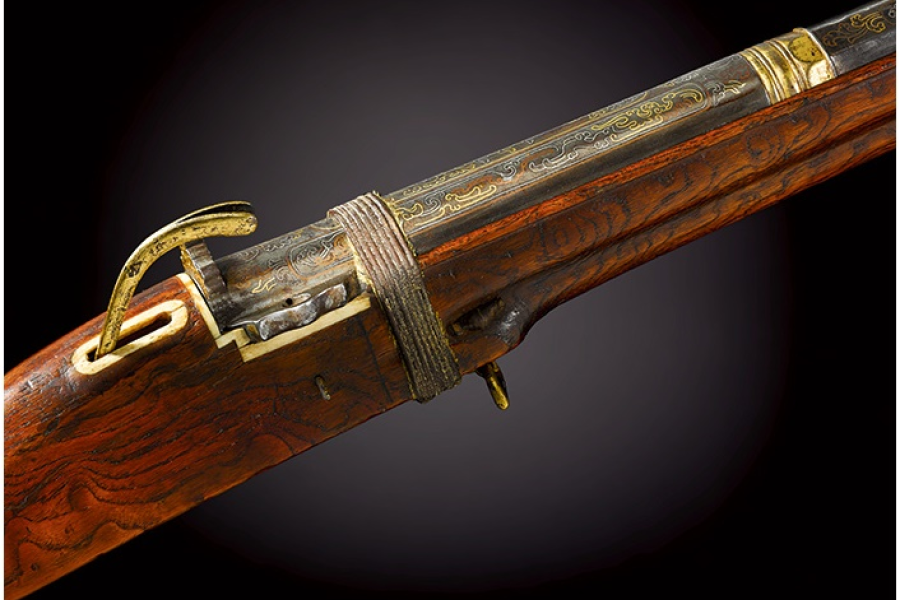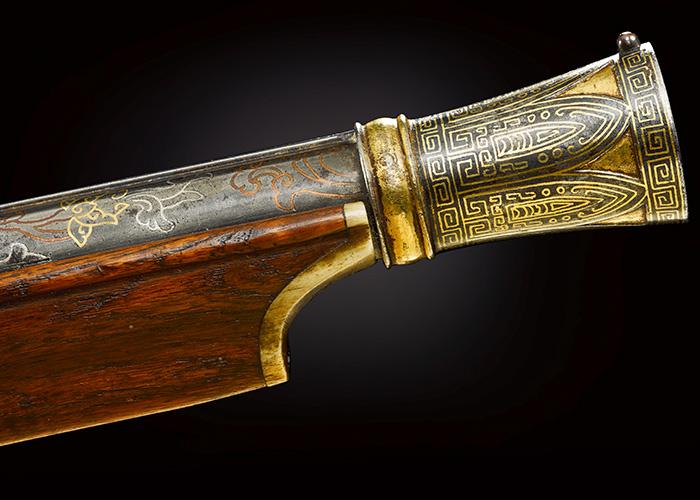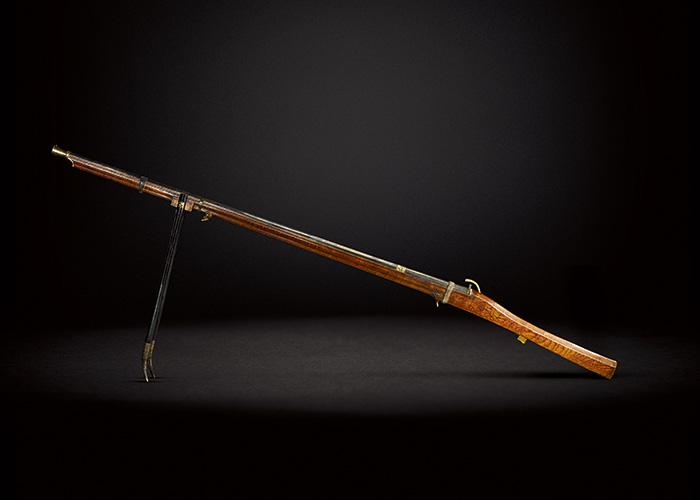LONDON & HONG KONG, 10 October 2016 – On 9 November 2016, Sotheby’s in London will present the first Chinese firearm with an imperial reign mark to be offered at auction. Created for the Qianlong Emperor of the Manchu Qing dynasty – arguably the greatest collector and patron of the arts in Chinese history – this brilliantly designed and exquisitely crafted musket, produced in the imperial workshops, is to be sold with an estimate of £1,000,000-1,500,000 (HK$10,270,000-15,410,000 / US$1,330,000-1,990,000).Robert Bradlow, Senior Director, Chinese Works of Art, Sotheby’s London, said: “This remarkable object epitomises the pinnacle of imperial craftsmanship during the Qing dynasty. The gun’s historical importance cannot be overstated – it ranks as one of the most significant Chinese treasures ever to come to auction.”
The musket bears not only the imperial reign mark on top of the barrel, but in addition, incised on the breech of the barrel, are four Chinese characters which denote the gun’s peerless ranking – the exceptional grading te deng di yi, ‘Supreme Grade, Number One’. This grading makes it unique amongst the known extant guns from the imperial workshops, and asserts its status as one of the most important firearms produced for the Qianlong Emperor.
The advent of Western firearm technology sparked the production of muskets in the imperial workshops, and this modern mode of weaponry had unquestionable advantages over the traditional bow and arrow for hunting. Using only the most luxurious materials, imperial muskets were created in very small numbers for the Qianlong Emperor. While the Emperor is unlikely ever to have held a gun in battle, he would regularly hunt with a musket.
The Supreme Number One is closely related to six celebrated, named imperial Qianlong muskets in the collection of the Palace Museum, Beijing, which appear to correspond with seven muskets listed in the Qing work, Collected Statutes of the Qing Dynasty with Illustrations. These guns were probably graded in the same way as the Supreme Number One, but of lower grade and/or number (‘Supreme Grade, Number Two’, ‘Top Grade, Number 2’).
Revered as one of the most powerful ‘Sons of Heaven’, the Qianlong Emperor (1711-1799) was the longest-lived and de-facto longest-reigning emperor in Chinese history (r. 1736-1795). In the 60th year of his reign (1795), the eighty-five year old Qianlong Emperor declared his abdication, lest he surpassed the 60-year reign of his grandfather, the Kangxi Emperor (r. 1662-1722). In a grand coronation ceremony the following year, his fifteenth son took position of emperor, though the Qianlong Emperor continued to rule China as the Qing dynasty’s only, and China’s last, Emperor Supreme.
 An Extremely Rare Imperial Matchlock Musket Qianlong Mark and Period Estimate: 1,000,000–1,500,000 GBP - Mit freundlicher Genehmigung von: sothebys.com
An Extremely Rare Imperial Matchlock Musket Qianlong Mark and Period Estimate: 1,000,000–1,500,000 GBP - Mit freundlicher Genehmigung von: sothebys.com
 - Mit freundlicher Genehmigung von: sothebys.com /
- Mit freundlicher Genehmigung von: sothebys.com /  - Mit freundlicher Genehmigung von: sothebys.com /
- Mit freundlicher Genehmigung von: sothebys.com /